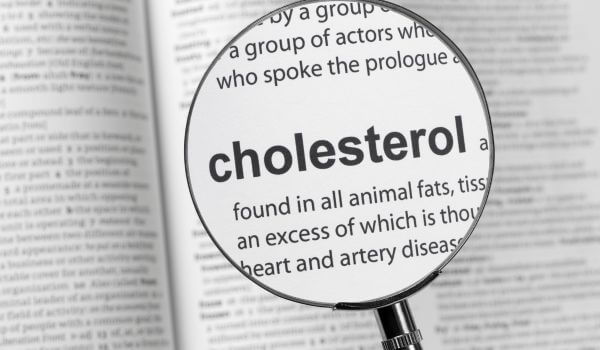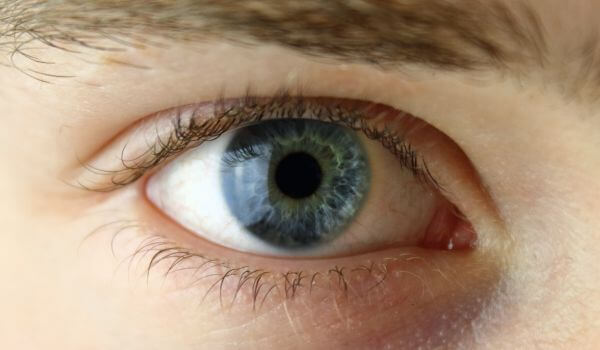 I cannot count the number of times I’ve made a pact with myself and pledged to others that I will get myself fit, work out regularly, and shed excess weight. I’ve often started a diet and gym routine with a male friend or partner. Imagine how demotivating it becomes when, a few weeks into the program, the man I’m working out with starts to change shape before my eyes. More muscle definition and shedding pounds like it’s the easiest thing in the world. Not so for me.
I cannot count the number of times I’ve made a pact with myself and pledged to others that I will get myself fit, work out regularly, and shed excess weight. I’ve often started a diet and gym routine with a male friend or partner. Imagine how demotivating it becomes when, a few weeks into the program, the man I’m working out with starts to change shape before my eyes. More muscle definition and shedding pounds like it’s the easiest thing in the world. Not so for me.
Self-doubt then tends to run through my brain. Am I doing it wrong? Am I not lifting heavy enough, and do I need to increase my cardio? Is my diet what’s hindering me?
Let’s put those thoughts aside because it turns out that men are more likely to shed excess weight faster than women, especially at the start. Why is this? It could be down to genetics.
The science behind weight loss between genders
Metabolism and body composition
Women usually have relatively more body fat and less muscle than men, which impacts their metabolism. Metabolism refers to the process by which the body converts food into energy. In terms of weight loss or gain, a faster metabolism means your body burns more calories at rest, while a slower metabolism can make it harder to shed excess weight. The number of calories your body burns at rest is partly influenced by muscle mass. Since women naturally have less muscle and more fat than men, their metabolic rate tends to be lower.
Men also usually carry more visceral fat, which surrounds internal organs. Women, on the other hand, often have more subcutaneous fat stored under their skin, especially around their thighs, hips, and backside. This kind of fat plays a crucial role in childbearing by providing energy reserves for pregnancy and breastfeeding, supporting hormonal balance, and protecting reproductive organs. Losing this type of fat is more difficult than losing visceral fat, as it metabolizes more slowly.
Less testosterone and body mass
Testosterone levels are by nature much higher in men than in women, but this hormone still plays an important role in women. This hormone helps maintain muscle mass, build stronger bones, and support muscle growth in both men and women. As people age, testosterone levels drop, which is one reason muscle and bone strength decrease over time. Low levels of testosterone can make it harder to grow or maintain muscle and may also lead to weight gain.
Men also tend to use more calories than women at rest and when active, as they tend to have a higher muscle mass and larger organs. To put it simply, men use more calories for their basic bodily functions than women do, meaning that it is easier for them to go into a caloric deficit to lose weight.
Hormonal changes throughout a woman’s life
Women experience far more radical changes in their hormones throughout their lives than men do. Along with puberty, which both men and women go through, hormone levels also change in women regularly during their monthly menstrual cycles and again quite radically during pregnancy. Finally, while both genders go through menopause, it happens over a far shorter time for women, and it involves more drastic changes in the volume and balance of the sex-defining hormones.
Menstrual cycle
Like most females, I went through the regular monthly cycle after puberty, which is caused by substantial changes in hormone levels. Studies have found that the hormonal fluctuations associated with the menstrual cycle influence appetite control and eating behavior. This makes weight control harder for many women and can lead to steady increases in body fat.
Pregnancy
Women often gain weight and body fat during pregnancy, and this weight gain doesn’t always go away quickly after giving birth. Any weight gained from pregnancy can persist for several reasons, including hormonal changes, lifestyle adjustments, lack of sleep, and the body’s natural recovery process. It may take time for metabolism and activity levels to return to pre-pregnancy norms. Diet, exercise, and patience are key to gradual weight loss postpartum.
Menopause
Following the transition into menopause, women often gain weight around the stomach instead of hips or thighs. This happens because hormone levels drop sharply, and metabolism slows down. As they get older, they also lose muscle, making it harder to keep the same weight they had before menopause or to lose weight.
Weight management after menopause may differ from that before menopause. Many people think Hormone Replacement Therapy (HRT) causes weight gain, but that’s not necessarily always true. Some women might have some water retention, but HRT can help reduce belly fat after menopause.
While healthy lifestyle choices are beneficial at any age, they become especially important during menopause. During this time, focus on health by keeping track of menopausal symptoms and any changes in the body while seeking early advice from a doctor. Maintaining a balanced diet rich in calcium and vitamin D, staying physically active, and limiting alcohol to no more than two standard drinks per day can also contribute to better overall well-being.
Hormonal imbalances
Hormone imbalances are common for women at different times in their lives. Some are short-term, but others, like polycystic ovary syndrome (PCOS), can last a lifetime. About 5% to 10% of women have PCOS. This condition can make it harder to lose weight and lead to irregular periods. While PCOS has no cure, its symptoms can be managed with diet, exercise, supplements like Inositol Plus, and sometimes medications like metformin may be prescribed.
PCOS isn’t the only health issue that can lead to weight gain from hormone problems. Conditions like Cushing’s syndrome, Hashimoto’s disease, and hypothyroidism can also cause hormone imbalances that make it harder to manage weight. These conditions tend to affect women more often than men.
How to overcome weight loss obstacles
Because of biology, losing weight can be harder for women, but it’s still possible to make progress.
Include resistance and weight training
Gaining muscle can help increase metabolism, meaning your body burns more calories even when resting. To keep muscle, it’s important to do resistance exercises like lifting weights or using resistance bands at least twice a week for 20 to 30 minutes. This becomes even more important as people get older since metabolism slows down and muscle naturally decreases with age.
Experts say weight training is important for women because it helps build muscle, which can boost metabolism and reduce the risk of osteoporosis. Weight-bearing exercises are not only great for staying fit but also for improving metabolism. They can also lower insulin resistance, which may help prevent diabetes.
There are many ways to do resistance training. People can:
- Utilize machines at the gym or at home for guided strength exercises.
- Incorporate free weights or resistance bands for a versatile and dynamic workout.
- Join group fitness classes like Pilates to build strength in a supportive environment.
- Rely on your body weight with moves like push-ups, squats, and lunges for effective resistance training.
Consider weight loss medications and supplements.
Someone who is dealing with obesity or finding that their weight is stubborn and they are finding it hard to shed excess weight may benefit from weight loss medications approved for obesity, such as Wegovy. This can be used along with other therapies for weight loss, including weight loss supplements such as the Healthy Weight Pack, which contains ingredients that can boost metabolism and help the body shift more easily into weight loss mode.
Find the diet that works best for you.
Following a balanced diet is important for any kind of weight loss. But that diet depends on what works best for the individual and their own health status. For example, diets such as the Mediterranean diet may be useful for the general population, but a low-carb or keto diet with appropriate supplementation might be more helpful for people with conditions like PCOS or diabetes who may struggle with low-carb diets. Whatever the regime, it’s important to make sure meals are balanced and full of nutrients. This includes eating lean proteins, healthy fats rich in omega-3 fatty acids like nuts, olive oil, and avocados, and cutting back on simple carbs like sugar, white bread, and sweetened drinks. A diet rich in fruits and vegetables is important for getting enough vitamins and minerals.
It isn’t a sprint, it’s a marathon.
Losing weight takes patience, and while women may lose weight more slowly than men initially, we can catch up over time. With effort and consistency, both eventually cross the finish line. Comparing progress with others can lead to frustration, so it’s better to focus on personal goals to stay motivated.
Healthy weight loss usually happens slowly. According to the CDC, losing one to two pounds a week makes it easier to keep the weight off long-term. Quick weight loss from crash diets often doesn’t last because those diets are hard to stick to. Losing weight gradually helps people build healthier habits that are more sustainable.
Talk to a healthcare provider or weight management specialist if you’re failing to shed excess weight. You might need a new plan that better suits your daily life.
FAQs
How do I manage weight gain during my periods?
Weight gain during monthly periods is a common concern for many women. This is due to hormonal changes that can cause water retention and bloating. Here are some tips to help manage weight gain during your period:
- Stay hydrated. Drinking plenty of water helps flush out excess fluids and reduce bloating.
- Eat a balanced diet. Focus on eating whole, nutrient-rich foods such as fruits, vegetables, lean protein, and healthy fats. Avoid highly processed and salty foods that can contribute to bloating.
- Exercise regularly. Regular physical activity can help reduce water retention and improve mood during periods.
- Track your cycle. Keeping track of your menstrual cycle can help you anticipate when you may experience weight fluctuations.
Do GLP-1 treatments help with PCOS weight gain?
Drugs based on GLP-1 are effective in managing weight gain associated with polycystic ovary syndrome (PCOS), as well as for general use as a weight-loss medication. They work by increasing the production of GLP-1, a hormone that regulates blood sugar levels and can also help control appetite. However, it is important to consult with a healthcare professional before starting any new medication for PCOS or weight management. They can provide personalized recommendations based on your specific health needs.
How can GLP-1 treatments help with hormonal weight?
GLP-1 treatments help by regulating insulin and blood sugar levels, which can, in turn, improve metabolism and aid in weight management. Additionally, GLP-1 medications have been found to reduce appetite and increase feelings of fullness, making it easier to stick to a healthy diet.
Can working out cause weight gain?
Regular exercise can help both men and women to shed excess weight by increasing muscle mass and boosting metabolism. Since muscle weighs more than fat does, there may be an increase on the scale as muscle is built and fat is lost, but this is far from being a bad sign,
















